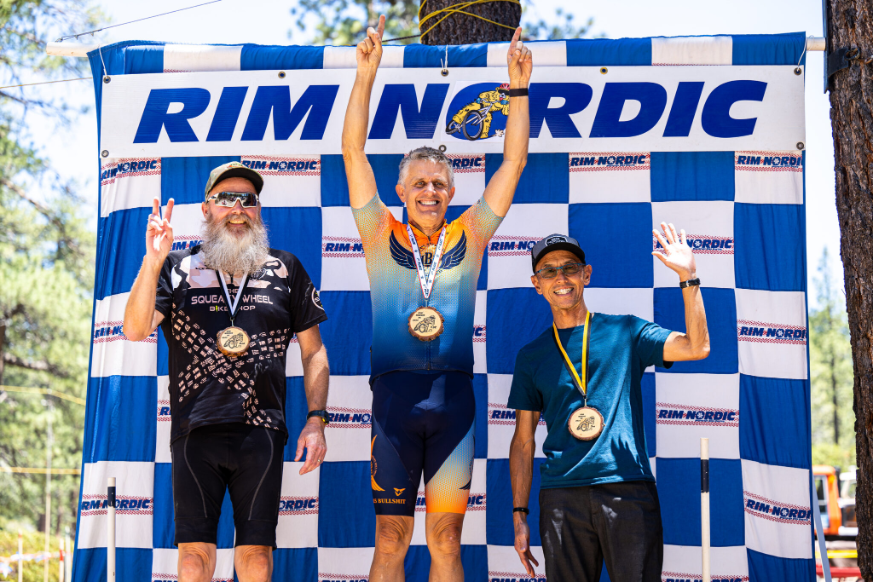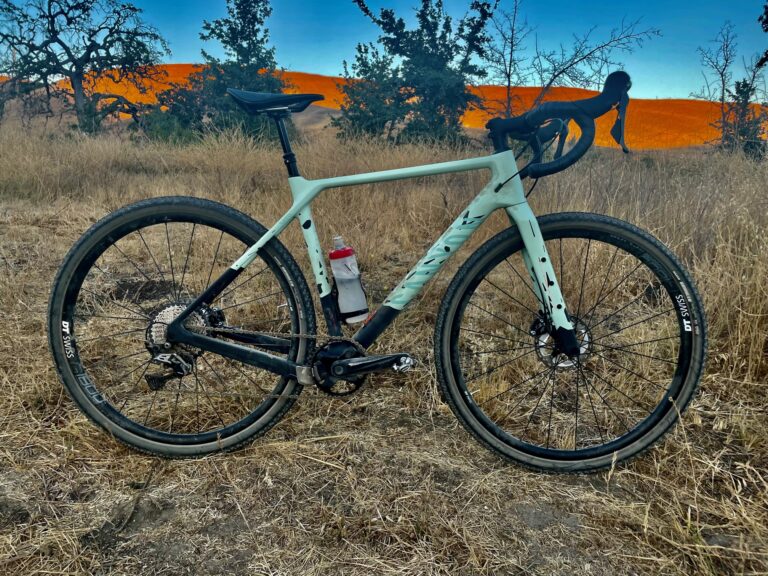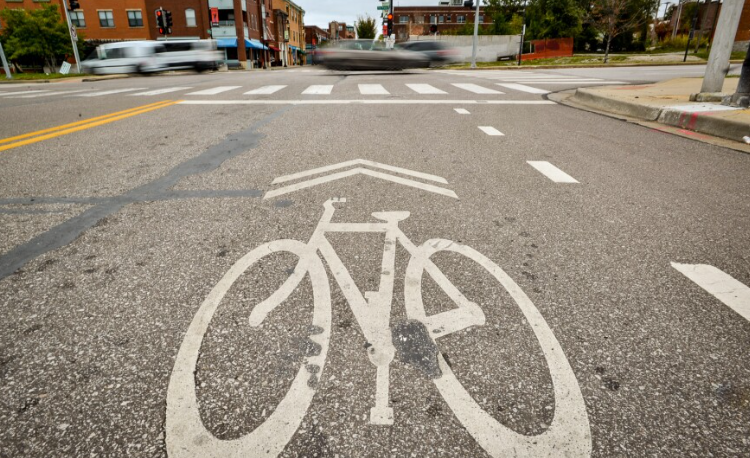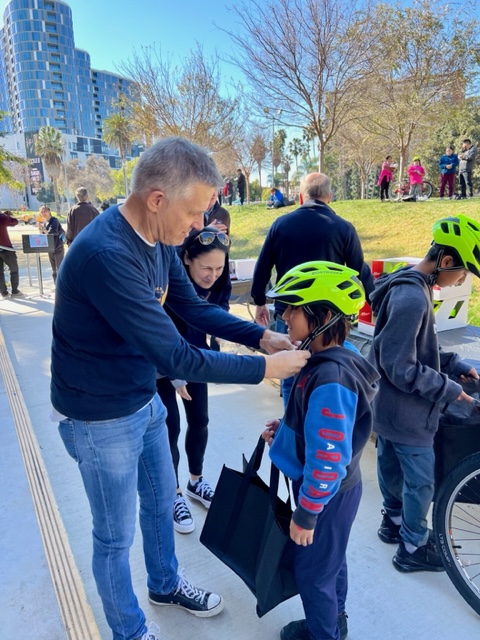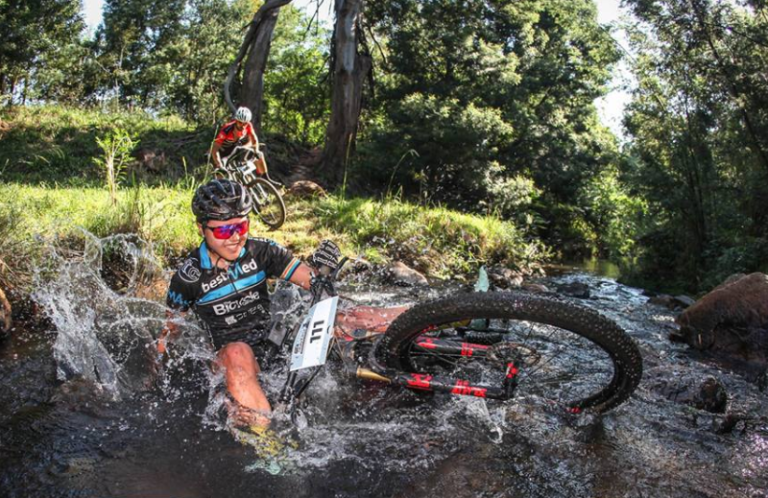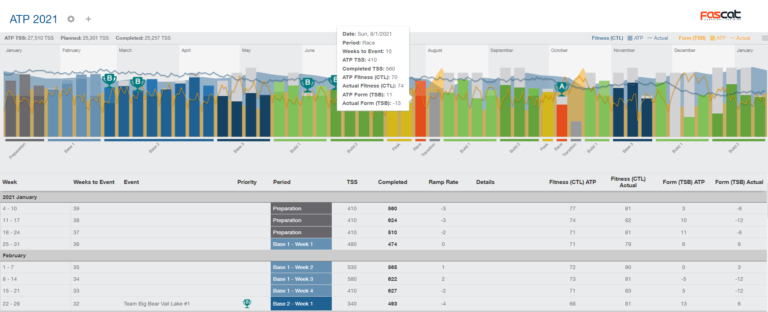Grand Masters Cycling Training
As a 63-year-old mountain bike racer with 30 years of racing and training experience, I’ve learned much about what it takes to stay competitive and enjoy the sport as a grand master cyclist. (A grand masters cyclist is a competitive cyclist in their 60s and 70s.) In this blog post, I’ll share my perspective on grand masters cycling training.
When I was in my 40’s and 50’s, I did hard intervals and training rides the morning after a late night out on the town. I felt like crap, but I just powered through. Straight up, no way I can do that today. As we age, our bodies change, and our physical abilities decline. However, that doesn’t mean we must give up our passions! Grand masters cyclists, need to adapt their training to accommodate the physiological changes that come with aging.
Why Train Differently as a Grand Master
As we age, our bodies undergo a range of physiological changes that can affect our performance on the bike. For example, our muscles lose strength and mass, our bones become less dense, and our cardiovascular system becomes less efficient. These changes can affect our speed, endurance, and recovery time.
As a result, grand masters cyclists need to train differently than younger cyclists. We need to be more mindful of recovery and rest, incorporate strength training into our training programs, improve our flexibility and mobility, and include interval training in our workouts.
Key Elements of Grand Masters Cycling Training Recovery and Rest
Recovery and rest are crucial for grand masters cyclists. As we age, our bodies take longer to recover from intense workouts, and we’re more prone to injury. It’s important to allow our bodies enough time to recover and repair after each workout. That means taking rest days, reducing the intensity of workouts, and getting enough sleep.
Strength Training for Grand Masters Cyclists:
Strength training is essential for grand masters cyclists. As we age, we lose muscle mass and strength, which can affect our speed and endurance on the bike. By incorporating strength training into our training programs, we can maintain or increase our muscle mass and strength. This, in turn, can improve our speed and endurance on the bike.
Don’t worry; you don’t need to suddenly become a gym rat in your 60’s. The fact is that you can increase your muscle mass by doing bodyweight exercises in your own home. That’s what I do, as I hate going to the gym. Canadian Cycling Magazine has a great article to guide you through a bodyweight strength training routine.
Flexibility and Mobility for Grand Masters Cyclists:
Improving our flexibility and mobility can help prevent injury and improve our performance on the bike. As we age, our joints become stiffer, and our range of motion can decrease. Stretching and mobility exercises can help improve our flexibility and mobility, making us more comfortable on the bike and less prone to injury. Flexibility and mobility exercises are a key component of a grand masters cycling training program.
Interval Training for Grand Masters Cyclists
Interval training involves alternating periods of high-intensity exercise with periods of rest or low-intensity exercise. Interval training can help improve our cardiovascular fitness, speed, and endurance on the bike. As grand masters cyclists, you won’t be able to sustain high-intensity efforts for as long as younger cyclists. However, incorporating interval training into our grand masters cycling training program can help us improve our performance significantly.
This is where doing a structured training program a few days a week can really help. There are many options to choose from.
Here is a link to my Comprehensive Review of the Most Popular Masters Cycling Training Programs
Here is a link to TrainerRoad, the program I currently use and love
Nutrition and Hydration for Grand Masters Cyclists
Proper nutrition and hydration are critical for grand masters cyclists. As we age, our bodies may become less efficient at absorbing and utilizing nutrients. Therefore, it’s essential to fuel our bodies with the right nutrients to support our training and racing. It’s also important to stay hydrated to maintain our performance and prevent dehydration.
Here is a link to my post on what to eat and drink on a bike ride you may find helpful
Mental Preparation for Grand Master Cyclists
Mental preparation and mindset are just as important as physical preparation for grand masters cyclists. It’s essential to cultivate a positive mindset and deal with nerves before races. Visualization, positive self-talk, and deep breathing exercises can help us stay focused and calm before races.
My Personal Experience as a Grand Masters Cyclist
As a 63-year-old mountain bike racer with 30 years of racing and training experience, I’ve learned that age is just a number. With the right approach, we can continue to challenge ourselves and achieve our cycling goals, regardless of our age.
In my personal experience as a grand master cyclist, I’ve had to adapt my training program over the years to accommodate the changes that come with aging. I’ve found that recovery and rest are essential to prevent injury and maintain my performance. I take one or two rest days per week and reduce the intensity of my workouts as needed.
Strength training has also been crucial for me as a grand master cyclist. I incorporate weight lifting and bodyweight exercises into my training program to maintain my muscle mass and strength. I’ve noticed a significant improvement in my speed and endurance on the bike since I started strength training regularly.
I also prioritize flexibility and mobility in my training program. I do yoga and stretching exercises to maintain my range of motion and prevent stiffness and soreness. I’ve found that this helps me feel more comfortable on the bike and less prone to injury.
Interval training has also been a game-changer for me as a grand master cyclist. I do high-intensity intervals once or twice a week to improve my cardiovascular fitness and speed. While I may not be able to sustain high-intensity efforts for as long as younger cyclists, I’ve found that incorporating interval training into my training program has significantly improved my performance.
Proper nutrition and hydration have also been crucial for me as a grand master cyclist. I make sure to fuel my body with the right nutrients before and after workouts and races, and I stay hydrated throughout the day. I’ve noticed a significant improvement in my recovery time and overall performance since I started paying more attention to my nutrition and hydration.
Lastly, mental preparation and mindset have been just as important as physical preparation for me as a grand master cyclist. I use visualization, positive self-talk, and deep breathing exercises to stay focused and calm before races. I’ve found that this helps me perform better and enjoy the sport more.
Conclusion Grand masters cycling training requires a different approach than training as a younger cyclist. By incorporating recovery and rest, strength training, flexibility and mobility, interval training, proper nutrition and hydration, and mental preparation into our training programs, we can continue to challenge ourselves and achieve our cycling goals. As a 63-year-old mountain bike racer with 30 years of racing and training experience, I’m proof that age is just a number. With the right approach, we can continue to enjoy the sport and stay competitive.
Conclusion
Grand masters cycling training requires a holistic approach that addresses the physiological changes that come with aging. By incorporating recovery and rest, strength training, flexibility and mobility, interval training, proper nutrition and hydration, and mental preparation into our training programs, we can stay competitive and enjoy the sport.
Links to other stuff you may be interested in:
2023 US Masters XC Mountain Bike Championships
Cycling Motivation-How to Stay Motivated as a Masters Cyclist
How to Create an Annual Cycling Plan for the Masters Cyclist in 2023
John
